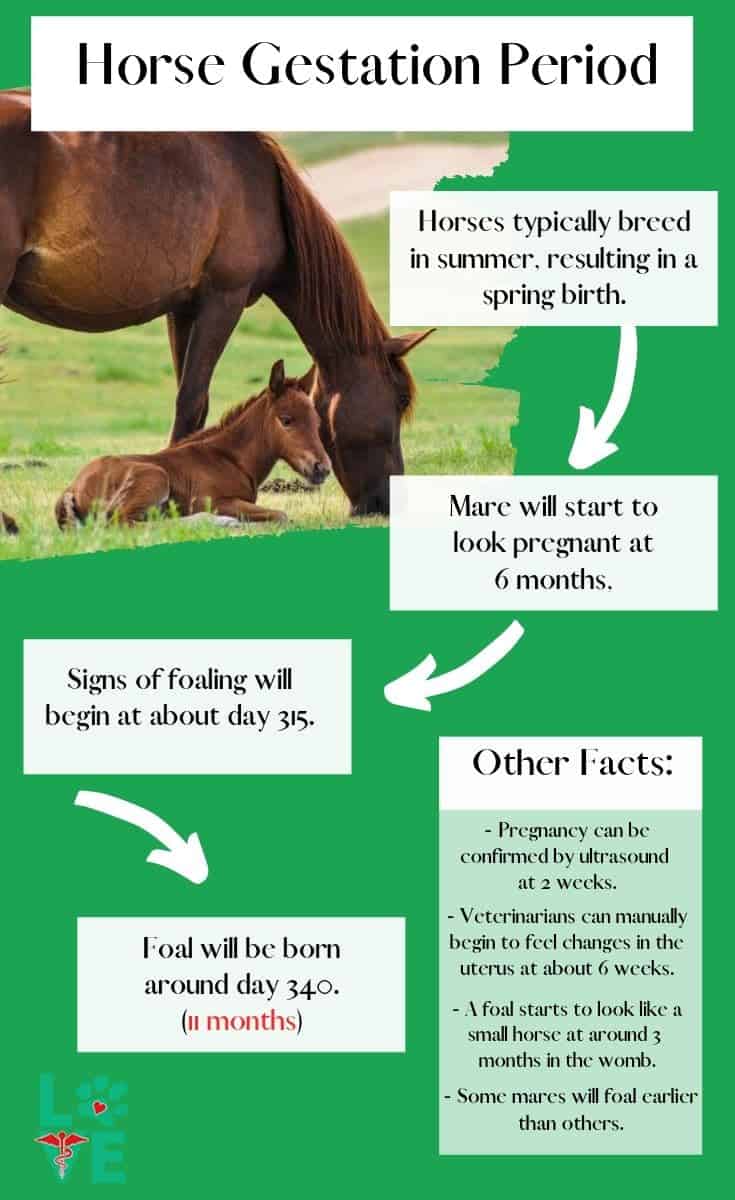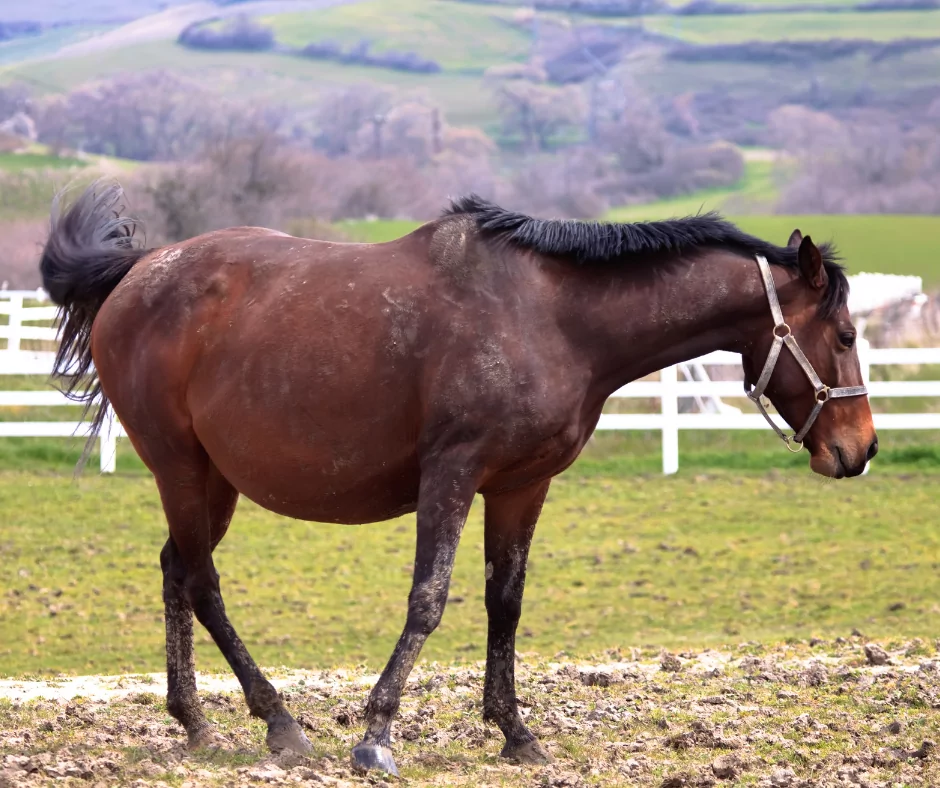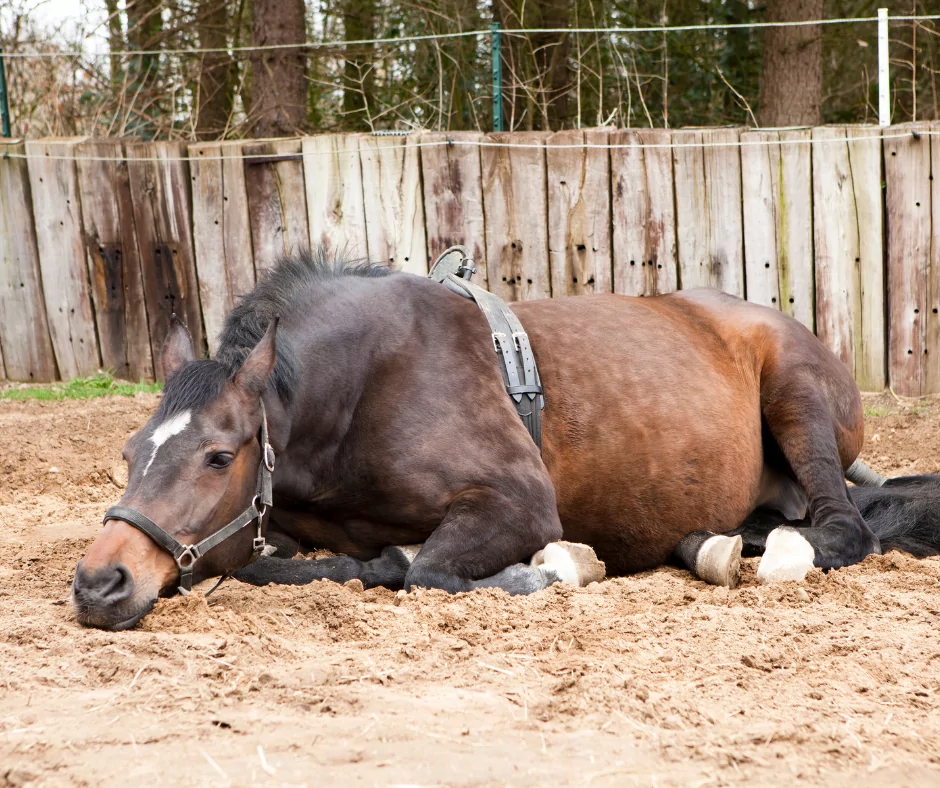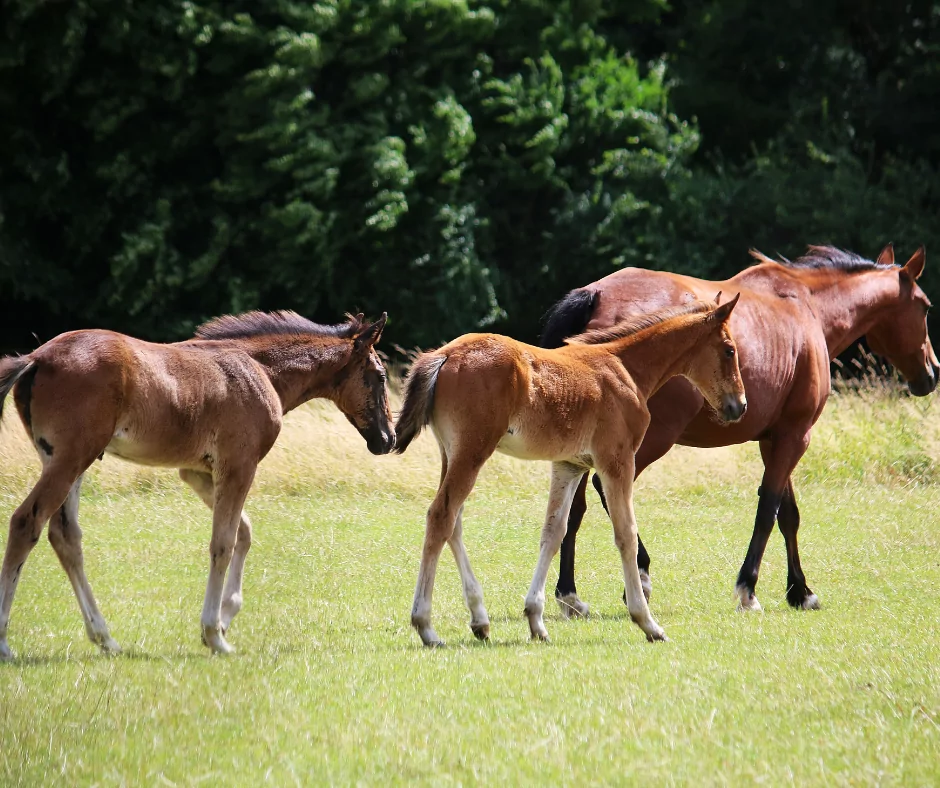What You Need to Know About The Horse Gestation Period
If spring is here, that means mares all over the world are giving birth to their foals. This process is also called foaling. Horse gestation can differ greatly in comparison to some of the other animals we work with in veterinary medicine. Whether a horse is naturally bred or artificially inseminated, it’s important to understand the horse’s gestation period.

Horse Pregnancy Signs The During Gestation Period
The symptoms of pregnancy in horses are very similar to those of humans. A pregnant horse will experience the same symptoms as a human does during pregnancy, such as abdominal swelling, leg edema, and nasal discharge. One symptom that is unique to horses, however, is the early oestrus (heat) before the mating season starts around four to six weeks after conception. Pregnant female horses may show their first signs of heat anywhere from one to three weeks after conception. During this heat, the pregnant female horse will show the same symptoms of oestrus as a mare that has not conceived.

Six symptoms of pregnancy in horses include:
- Presence of vaginal discharge (clear with, or without mucous)
- Swollen vulva
- Increased urination and thirst
- Temperature drop (mild fever)
- Restlessness
- Mucous membrane (skin or mouth lining) changes.
The Stages of Pregnancy in Horses
Pregnancy in horses generally lasts around 11 months. After a gestation period of 11 months, female horses will give birth to a foal. The first eight months of pregnancy are called “the early stages” and the last three months are known as “the final stages.”
The earliest symptom that a horse is pregnant is an increased appetite – equines require more calories and nutrients during this time. A healthy mare’s appetite may increase by up to 20% or more as her body undergoes physiological changes in preparation for the upcoming birth.
The first sign of pregnancy in the mare is a discharge of blood or a clouding of the vulva. The vulva is the opening at the end of a female horse’s reproductive tract where eggs and sperm are released during sexual intercourse. The typical appearance of this discharge varies with each mare, but usually, it is a thick, red color that does not smell unpleasant.

Eight to ten days following this first bleeding, fertilization should begin and parturition will occur within three months.
The early stages of pregnancy, that is, from conception to two months before birth, are often regarded as a critical stage in pregnancy. Many veterinarians recommend that mares be re-tested for pregnancy one month (30 days) after the mare was initially diagnosed.
This is because at this stage of the pregnancy it is possible for a veterinarian to determine whether the horse has miscarried by determining if there was live embryonic bleeding during the time between tests. Mares unable to palpate their abdomens will also never be able to determine whether they have miscarried. The “live” test looks for the presence of a foal’s skull and the “dead” test looks for an unborn fetus.
Postpartum bleeding is also common during the early stages of pregnancy, typically also occurring within two to three weeks after giving birth.
The mare begins to show signs of pregnancy at around 3 months into gestation and will begin showing early signs of labor at five months’ gestation.
Facts About The Horse Gestation Period

- Horses typically breed in summer, resulting in a spring birth.
- It is recommended to follow this general rule with Artificial Insemination (AI) as well.
- A mare can produce one healthy foal a year.
- Twin pregnancies are possible in equine cases, but almost always result in the loss of one or both embryos.
- Pregnancy can be confirmed by ultrasound as early as two weeks.
- Veterinarians can manually begin to feel changes in the uterus at about six weeks.
- Pregnancy can be confirmed by urine and blood at around three months.
- During the first 100 days of pregnancy, a mares appetite begins to increase, and mood changes might occur.
- It is recommended to test for pregnancy at the three-month mark, due to the high risk of a loss of a pregnancy during this first trimester.
- A foal starts to look like a small horse at around three months in the womb.
- A mare will begin to look pregnant at six months.
- When day 315 comes around, a mare may begin to show signs of foaling. At this time an owner should be getting prepared for foaling.
- During birth, the mare may appear agitated and “colicky.” This means biting at her sides, rolling around, and walking restlessly.
- The average gestation period is 340 days.
- Some mares will have shorter or longer gestation periods.
- Foaling before 315 days is considered premature.
- Mares can safely carry a foal to term up into their 20’s.
- Most pregnancies and deliveries are without complication and require little human assistance, but isolated incidents do occur.

If you enjoyed this info-graphic, take a look at the article How do you become an Equine Veterinarian? on our blog.
